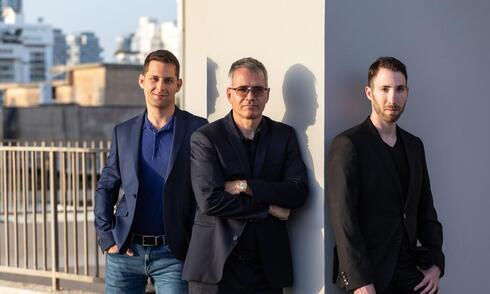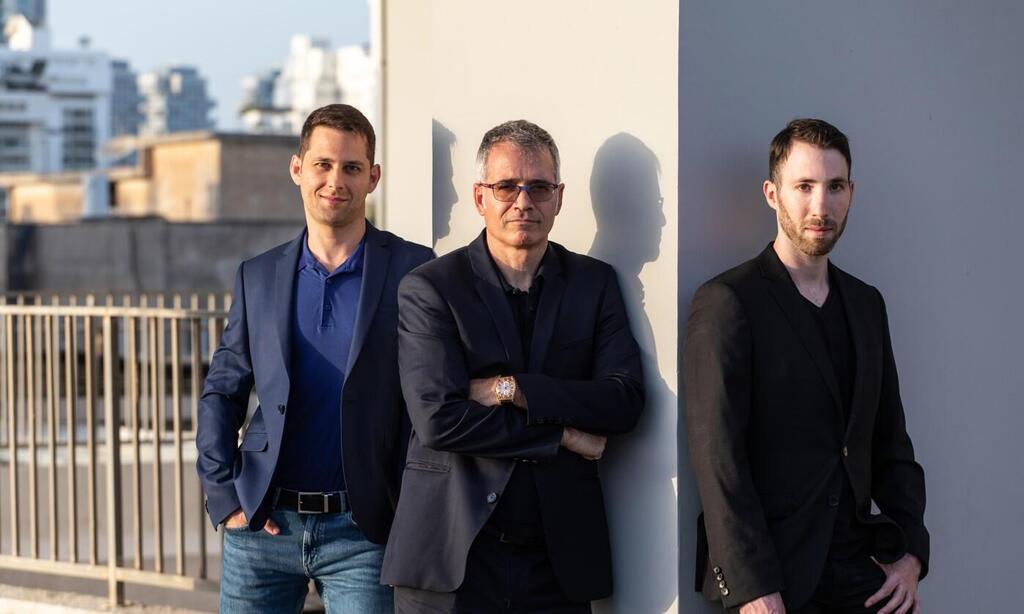
2022 VC Survey
Expect more VC scrutiny in 2023, says Hyperwise Ventures
The VC firm has joined CTech to share its views on the VC space.
“We expect that in 2023 it would be even tougher than in 2022 to raise capital – much more scrutiny and smaller Seed rounds for first timers, and actual meaningful revenues for A rounds,” said Nathan Shuchami, Managing Partner at Hyperwise Ventures. “Even though it’s difficult to predict, we expect that many U.S-based A+B round VCs would prefer to sit on the fence, and would eventually invest only 50%-60% of what they have invested in 2021.”
According to Shuchami, the firm didn’t change the way it operated in 2022 and it is not expecting to change it in 2023. “We are planning to stick to our conservative investment criteria and make 1-3 new Seed investments in 2023. We believe that the current global economic crisis can present great investment opportunities to early-stage funds like Hyperwise Ventures.”
Name of fund/funds: Hyperwise Ventures
Total sum of fund: Fund 1: $70M, Fund 2: $120M
Partners: Ben Omelchenko, Aviv Gafni, Nathan Shuchami
Notable/select portfolio companies: Argon Security, Pontera, DealTale, CyberPion, Kubiya, Armo Security, Speedb
Hyperwise Ventures has joined CTech to share its views on the VC space.
If 2020 was the year of the pandemic, and 2021 was the year of records, how would you define 2022 in the VC sector?
2022 can probably be classified as the year of disillusionment – in both valuations and sizes of Seed and A rounds, and also the desire to invest in futuristic, unproven technologies (e.g. Metaverse, NFT, etc.)
Who are the big winners of 2022 and why?
Funds that were disciplined not to follow the buzz and crowd in 2021, even at the cost of not making any new investments in 2021 in inflated valuations and iffy, unproven technologies. These funds can use their saved capital to make excellent investments in 2022 and 2023 (attractive valuations, and only after conducting proper technical/business due diligence).
Who are the big losers of 2022 and why?
Startups that in 2021 (and also in Q1/22) raised Seed and A rounds in sizes and valuations that are unjustifiable economically (Seed) and are not related to the business results (A). These startups are now finding themselves running out of cash, trying to raise either extensions to the last round, or additional capital in a down round. Some of them would probably wind down next year.
What do you expect in the VC sector in 2023?
We expect that in 2023 it would be even tougher than in 2022 to raise capital – much more scrutiny and smaller Seed rounds for first timers, and actual meaningful revenues for A rounds. Even though it’s difficult to predict, we expect that many U.S-based A+B round VCs would prefer to sit on the fence, and would eventually invest only 50%-60% of what they have invested in 2021.
We didn’t change the way we operate this year and we are not expecting to change it in 2023. We are planning to stick to our conservative investment criteria and make 1-3 new Seed investments in 2023. We believe that the current global economic crisis can present great investment opportunities to early-stage funds like Hyperwise Ventures.
What global processes will affect (positively and negatively) the Israeli market?
The higher interest rates would make it tougher for new funds to raise capital, and for startups to raise venture lending.
The overall recession would make it much harder for Seed and A startups to generate meaningful revenues to justify decent A or B rounds.
The geopolitical situation with China and Russia would negatively affect the supply chain and would make it much harder for HW-based startups to meet delivery deadlines, which would affect revenue recognition and customer satisfaction.
Last but not least, the recession and geopolitical situation would increase cyber espionage and criminal activities even more, which would make it difficult for organizations to cut their cyber security budgets.
How should different companies prepare for the coming year?
We recommend startups that raised an A or B rounds this year to make sure they have enough cash to last at least until the end of Q1/24. This may require in some cases downsizing the team to the core value prop. In most cases, 2023 is not going to be the year to open new markets, but rather to enforce and streamline existing successful markets and offerings.
What will be of the dozens of unicorns born last year?
Since a lot of cash was raised, many of them will not raise additional cash in a down round, but rather downsize and reduce the burn rate to weather the crisis. In a conservative hesitant market, the sum raised is much more important than the valuation.
What sectors will experience an acceleration in VC investment and which will suffer a slowdown - and why?
Cybersecurity, AI, Fintech, and digital health would continue to attract attention and capital in 2023. Futuristic, capital-intensive, or “trendy” B2C projects (e.g. quantum computing, Metaverse, NFT) would face difficulties to raise capital.
HR: Do the layoffs, those that have already happened and those that are coming, help to fix in any way the distress experienced by companies over the past 2-3 years?
At the moment we don’t see yet a reduction in salaries, however, the sharp increase we have experienced in 2021 has stopped, and candidates now are not presenting uncommon demands anymore. We do believe however that in 2023 we may see a ~10% reduction in average salaries.
Armo Security, Kubiya, Liminal Security - Hyperwise Ventures’ notable portfolio companies
Armo Security
Cybersecurity: The Open Source Kubernetes Security Platform - from development to production, configuration to runtime – built for DevOps teams.
Founders: Leonid Sandler, Shauli Rozen, Ben Hirschberg
Founding year: 2019
Number of employees: 40
Explanation behind investment:
The first and the only open-source Kubernetes end-to-end security platform built by security experts and experienced a hyper-growth in community adoption.
Kubiya
DevOps tools: The Siri for DevOps. DevOps Virtual Assistant that uses conversational AI to provide end-users with secure, on-demand access to cloud resources, operational workflows, and organizational knowledge.
Founders: Amit Govrin and Shaked Askayo
Founding year: 2022
Number of employees: 15
Explanation behind investment:
The first and unique approach that solves painful productivity problems of DevOps by combining advanced conversational AI technology. The CEO is a second-timer entrepreneur, and the CTO devised the idea organically from his first-hand experience as a DevOps.
Liminal Security (stealth)
Cybersecurity – end-to-end secrets management, security, and compliance
Founders: Itzik Alvas and Adam Cheriki
Founding year: 2022
Number of employees: 8
Explanation behind investment:
The first holistic approach that solves a high-demand security problem around secrets by passionate and dedicated founders who experienced it first-hand during their previous jobs.













